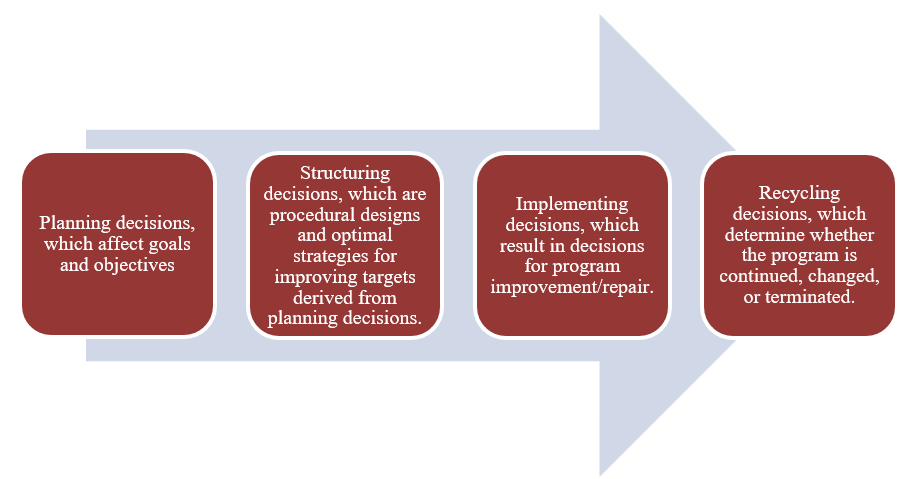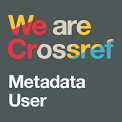Analysis of the Halaqah Study Program on Character Formation at Boarding School based on CIPP Model
DOI:
https://doi.org/10.51574/ijrer.v4i4.3589Keywords:
Character Formation, CIPP Model, Halaqah Study, Islamic Boarding SchoolAbstract
The necessity to assess the halaqah religious study program's impact on Islamic boarding school students' religious character, discipline, and responsibility prompted this research. Despite the program's long history, there has been no systematic examination of its fit with the madrasah's vision and objective and its impact on student character development. This study intends to evaluate the halaqah religious study program using the CIPP (Context, Input, Process, Product) model, focusing on program suitability, implementation, and character development outcomes. The research method used was qualitative, with data collection techniques through in-depth interviews, observation, and documentation. Research informants included the madrasah principal, supervising teachers, students, parents, committee administrators, and alumni in the Madrasah Tsanawiyah As'adiyah Puteri Pusat Sengkang. The evaluation results indicated that the halaqah program follows the madrasah's vision and mission and consistently develops Islamic character. Competent and experienced supervisors, supporting infrastructure, and different recitation methods help the program succeed. Students' good attitudes and religious conduct rise with positive parent and student reactions. Madrasas should raise the frequency and quality of halaqah (Islamic gatherings), teacher training, and stakeholder support for program sustainability based on these findings. This study focused on one madrasah and used qualitative methods; hence, a larger study using mixed approaches is necessary for more comprehensive results.
References
Abidin, M. Z. H. Z., Ibrahim, N., Noh, A. M. M., Yaacob, H. R. M., Hassan, A. R. A., & Amin, J. M. (2021). The Impact of Malakah Based on Halaqah at Pondok Learning Institutions. International Journal of Academic Research in Business and Social Sciences, 11(5), 654-668.
Ahmed, F. (2014). Exploring halaqah as research method: A tentative approach to developing Islamic research principles within a critical ‘indigenous’ framework. International Journal of Qualitative Studies in Education, 27(5), 561-583. https://doi.org/10.1080/09518398.2013.805852
Ahn, J. N., Hu, D., & Vega, M. (2020). “Do as I do, not as I say”: Using social learning theory to unpack the impact of role models on students' outcomes in education. Social and Personality Psychology Compass, 14(2), e12517. https://doi.org/10.1111/spc3.12517
Alanshori, M. Z., Maulidi, A., Muhlisin, A., Kusaeri, K., & Suparto, S. (2025). The Application of the CIPP Evaluation Model in Educational Programs in Indonesia. Scaffolding: Jurnal Pendidikan Islam dan Multikulturalisme, 7(2), 103-122. https://doi.org/10.37680/scaffolding.v7i2.7390
Al-Shanawani, H. M. (2019). Evaluation of self-learning curriculum for kindergarten using Stufflebeam’s CIPP model. Sage Open, 9(1), 2158244018822380. https://doi.org/10.1177/2158244018822380
Alsya'bani, I. S., Madjid, A., & Shodiq, S. F. (2025). Analysis of CIPP Evaluation Model on Religious Programs in Schools: Systematic Literature Review. JURNAL EDUSCIENCE, 12(3), 605-620. https://jurnal.ulb.ac.id/index.php/eduscience/article/view/6873
Amaliah, R. A., Mania, S., & Rasyid, M. N. A. (2024). Evaluasi Program Mangaji Tudang (Halaqah) terhadap Kualitas Hafalan Santri Pondok Pesantren Tahfidzul Qur'an Mir'atul Mujahid Kampung Bajo melalui Model CIPP. Didaktika: Jurnal Kependidikan, 13(2), 2515-2526.
Amin, M. (2022). Implementasi Program Pembiasaan Dan Keteladanan Pada Era New Normal Dalam Membentuk Akhlak Siswa MTs Miftahul Huda, Tayu, Pati. El-Tarbawi, 15(1), 129-156. https://doi.org/10.20885/tarbawi.vol15.iss1.art6
Aziz, S., Mahmood, M., & Rehman, Z. (2018). Implementation of CIPP model for quality evaluation at school level: a case study. Journal of Education and Educational Development, 5(1), 189-206.
Dizon, A. G. (2023). Historical development of CIPP as a curriculum evaluation model. History of Education, 52(1), 109-128. https://doi.org/10.1080/0046760X.2022.2098390
Guna, B. W. K., & Yuwantiningrum, S. E. (2024). Building Morality and Ethics Through Islamic Religious Education In Schools. IJGIE (International Journal of Graduate of Islamic Education), 5(1), 14-24.
Halim, W. (2018). Young Islamic preachers on Facebook: Pesantren As’ adiyah and its engagement with social media. Indonesia and the Malay World, 46(134), 44-60. https://doi.org/10.1080/13639811.2018.1416796
Hambal, M. (2017). Halaqah Tradition in Building Rabbani Characters in Pesantren Al-Islam Lamongan, East Java, Indonesia. Studia Religia: Jurnal Pemikiran dan Pendidikan Islam, 1(1).
Hanafiah, H., Kushariyadi, K., Wakhudin, W., Rukiyanto, B. A., Wardani, I. U., & Ahmad, A. (2024). Character Education's Impact On Student Personality: Curriculum And School Practices Review. At-Ta'dib, 19(1), 51-69. https://ejournal.unida.gontor.ac.id/index.php/tadib/article/view/12047
Harahap, S., & Isya, W. (2020). Model Pendidikan Nilai dan Karakter di Sekolah. Pedadidaktika: Jurnal Ilmiah Pendidikan Guru Sekolah Dasar, 7(1), 21–33. https://doi.org/10.17509/pedadidaktika.v7i1.26326
Hasan, A., Yasin, S. N. T. M., & Yunus, M. F. M. (2015). A conceptual framework for mechatronics curriculum using Stufflebeam CIPP Evaluation Model. Procedia-Social and Behavioral Sciences, 195, 844-849.
Hidayati, T. W., & Gufron, M. (2024). The Qur'anic Education Strategies for the Indonesian Context: An investigation of the Halaqah of the Qur’an in Mecca and Medina. International Journal on Advanced Science, Education, and Religion, 7(4), 44-59. https://doi.org/10.33648/ijoaser.v7i4.733
Khalid, M., Ashraf, M., & Rehman, C. A. (2012). Exploring the link between Kirkpatrick (KP) and context, input, process and product (CIPP) training evaluation models, and its effect on training evaluation in public organizations of Pakistan. African Journal of Business Management, 6(1), 274-279.
Kurniawan, A., Yanti, H., & Abdurrahman, A. (2023). Menajemen Kurikulum Merdeka Belajar Dalam Menerapkan Nilai-Nilai Kearifan Lokal Pada Pembelajaran di SD Negeri 16 Meulaboh-Aceh Barat. Jurnal Ilmiah Profesi Pendidikan, 8(4), 1927–1935. https://doi.org/10.29303/jipp.v8i4.1424
Luo, M. (2024). Construction and application of a core competitiveness evaluation index system for public health personnel training based on the CIPP model. Human Systems Management, 43(5), 707-722. https://doi.org/10.3233/HSM-230066
Malik, A. (2024). New variants of ultra-conservative Islamic schools in Indonesia: A study on Islamic school endeavor with Islamic group movement. Power and Education, 16(1), 14-28.
Marjuni, H. A., & Iqbal, M. (2022). Implementasi Pengajian Halaqah Dalam Membentuk Akhlak Peserta Didik Melalui Pengajian Kitab Kuning Di Madrasah As’Adiyah Pusat Sengkang Kabupaten Wajo. Inspiratif Pendidikan, 11(2), 276–291. https://doi.org/10.24252/ip.v11i2.32280
Megawati, M., & Sulisworo, D. (2024). Transformative Education in Character Development of Students in Religious-Based Schools: Narrative Review. Edu Cendikia: Jurnal Ilmiah Kependidikan, 4(03), 1475-1488.
Musolin, M., Fauzi, F., & Muflihin, H. (2023). Evaluating Curriculum at Madrasah Aliyah: Applying the Context, Input, Process, Product (CIPP) Model. AL-ISHLAH: Jurnal Pendidikan, 15(4), 6737-6748. https://doi.org/10.35445/alishlah.v15i4.2516
Mutiara Rushita Adi, L. P., Hendra Divayana, D. G., & Gede Agung, A. A. (2024). Penerapan Model Evaluasi CIPP dalam meningkatkan Efektivitas Program Supervisi Akademik. Jurnal Manajemen Pendidikan dan Ilmu Sosial (JMPIS), 6(1).
Nasir, M., Hartati, Z., & Syahmidi, S. (2025). The Impact of the Ĥalāqah Method in Improving the Religious Character of Students. Scaffolding: Jurnal Pendidikan Islam dan Multikulturalisme, 7(1), 260-273. https://doi.org/10.37680/scaffolding.v7i1.6998
Nurhakim, H. A., & Fahruddin. (2022). Evaluasi Program Pembelajaran Sejarah Daring Dengan Model Cipp. Jurnal Evaluasi Pendidikan, 13(2), 111–118. https://doi.org/10.21009/jep.v13i2.27456
Nursyamsi, U., Azis, A., Hayatunnufus, A. B., & Firdaus, A. H. (2023). Challenges of Salafiyah Islamic Boarding Schools: A Critical Reflection. Religious Studies: An International Journal, 11(1), 1-23.
Paul, S. A. S., Hart, P., Augustin, L., Clarke, P. J., & Pike, M. (2022). Parents’ perspectives on home-based character education activities. Journal of Family Studies, 28(3), 1158-1180. https://doi.org/10.1080/13229400.2020.1806097
Purnama, M. N. A. (2019). Analisis dan pengembangan desain pembelajaran pai berbasis karakter. QALAMUNA: Jurnal Pendidikan, Sosial, dan Agama, 11(1), 129-139.
Ritonga, T., Ananda, A., & Hasan, H. (2017). The Teaching Learning Methods of Islamic Classical Books In Islamic Boarding School. Asian journal of management sciences & education, 6, 126-132.
Roqib, M. (2021). Increasing social class through islamic boarding schools in Indonesia. Journal of Social Studies Education Research, 12(2), 305-329. http://jsser.org/index.php/jsser/article/view/3291
Rumjaun, A., & Narod, F. (2025). Social learning theory—albert bandura. In Science education in theory and practice: An introductory guide to learning theory (pp. 65-82). Cham: Springer Nature Switzerland.
Sahin, A. (2018). Critical issues in Islamic education studies: Rethinking Islamic and Western liberal secular values of education. Religions, 9(11), 335. https://doi.org/10.3390/rel9110335
Sakban, A., & Sundawa, D. (2023). Character education: Direction and priority for national character development in Indonesia. Jurnal Kependidikan, 9(3), 794-807.
Samsidar, S., Sormin, D., & Pasaribu, M. (2019). Peranan Mata Kuliah Al Islam Kemuhammadiyahan Terhadap Perilaku Mahasiswa Universitas Muhammadiyah Tapanuli Selatan. Al-Muaddib: Jurnal Ilmu-Ilmu Sosial dan Keislaman, 4(2), 296-305. http://jurnal.um-tapsel.ac.id/index.php/al-muaddib/article/view/1207
Saputra, M. (2023). The influence of halaqah on increasing the religiosity of members of the Ulul Albab Spirituality and Islamic Studies Student Activity Unit Imam Bonjol Padang State Islamic University. Jurnal Syntax Admiration, 4(4).
Stufflebeam, D. L., & Zhang, G. (2017). The CIPP evaluation model: How to evaluate for improvement and accountability. Guilford Publications.
Syafi'i, I., Aziz, Y., Khifdliyah, A., Al Firdausi, A. I., & Afianty, R. N. (2025). Improving Quality of Educational Institutions through Teacher Performance Evaluation with Perspective of CIPP Theory. al-Iltizam: Jurnal Pendidikan Agama Islam, 10(1), 42-56. https://doi.org/10.33477/alt.v10i1.9365
Syahril, S., Fajri, S., Duski, F. F., Putri, A. R., & Zulpadrianto, Z. (2024). Exploring Religious Moderation in the Halaqah Education System of Islamic Boarding Schools in Socio-Historical Perspective. Journal of Contemporary Islam and Muslim Societies, 8(2), 277-302.
Syarnubi, S., Mansir, F., Purnomo, M. E., Harto, K., & Hawi, A. (2021). Implementing character education in madrasah. Jurnal Pendidikan Islam, 7(1), 77-94. https://doi.org/10.15575/jpi.v7i1.8449
Taufik, M. (2020). Strategic role of Islamic religious education in strengthening character education in the era of industrial revolution 4.0. Jurnal Ilmiah Islam Futura, 20(1), 86-104.
Tsani, I., Arsyadana, A., Sufirmansyah, S., & Shafira, E. (2021). Evaluasi model cipp pada pembelajaran PAI dan budi pekerti di SMA Negeri 7 Kota Kediri. Al-Tadzkiyyah: Jurnal Pendidikan Islam, 12(1), 17-45. https://doi.org/10.24042/atjpi.v12i1.8165
Umam, K. A., & Saripah, I. (2018). Using the Context, Input, Process and Product (CIPP) model in the evaluation of training programs. International Journal of Pedagogy and Teacher Education, 2, 19-183. https://doi.org/10.20961/ijpte.v2i0.26086
Wahidah, B. (2018). Dakwah Halaqah Pondok Pesantren As’ adiyah Pusat Sengkang. Al-Hikmah: Jurnal Dakwah, 12(1), 131-148. https://core.ac.uk/download/pdf/236210843.pdf

Downloads
Published
How to Cite
Issue
Section
License
Copyright (c) 2025 Hasan Basri, Sitti Mania, Muhammad Nur Akbar Rasyid

This work is licensed under a Creative Commons Attribution-ShareAlike 4.0 International License.









1.png)













